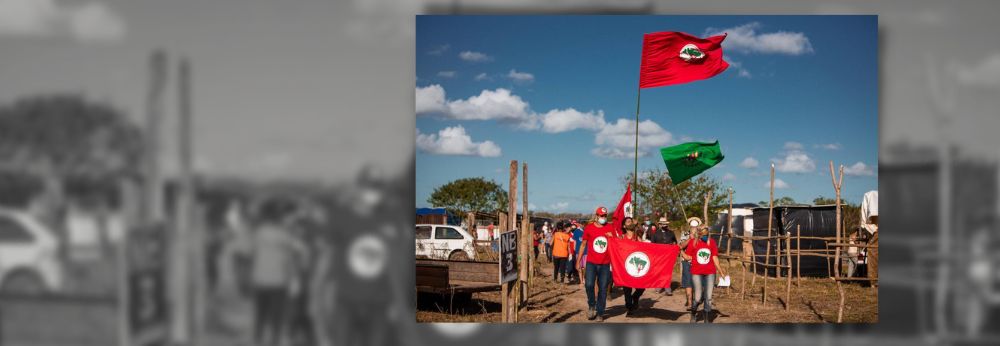VIDEO: Life inside an MST landless workers’ settlement in Brazil

For nearly 40 years, Brazil’s Landless Workers’ Movement (MST) has been fighting the concentration of landownership among the country’s elite through the direct occupation and settlement of fallow lands. TRNN contributor Michael Fox reports from MST land in the state of Paraná, where landless workers have built their own homes, schools, farms, and cooperatives.
The elite among the Brazilian Congress that represents the big landowners and agribusiness, has launched a Parliamentary Commission of Inquiry (CPI) on the MST. This is a blatant attempt by representatives of criminals that destroy the environment, conduct production with semi-slave labor and create violence in the countryside to criminalize the MST.
Commission of Inquiry on MST aims to divert focus from crimes of agribusiness
A Parliamentary Inquiry Commission, which has been set up to investigate the activities of Brazil’s Landless Rural Workers’ Movement (MST), actually seeks to divert focus from illegal actions committed by agribusiness, according to João Pedro Stedile, member of the MST’s national leadership. The commission was set up in the Chamber of Deputies this week.
In turn, Stedile proposed investigations into the activities of landowners and agribusiness.
“What we should have is an Inquiry Commission to investigate those who carry out deforestation, who invade Indigenous lands, who invade quilombola areas, and who use pesticides,” he pointed out.
Although left-wing candidate Luiz Inácio Lula da Silva won the presidential elections last year, the parliament continues to be dominated by right-wing forces, including those that back former President Jair Bolsonaro.
Stedile said that during the first Workers’ Party presidential administrations, a section of right-wing congressmen and their supporters kept making false allegations that the MST lived off public money. However, the national leader noted that the movement came out stronger after more than six years under the governments of Michel Temer and Jair Bolsonaro.
For Stedile, a key motivation behind the creation of the Inquiry Commission is to try to destabilize the government of Luiz Inácio Lula da Silva (PT). “They want to frame the government. From the point of view of political struggle, [the Inquiry Commission is] against the government more than it’s against us. It’s like saying to the government: ‘don’t advance in agrarian reform, don’t present a plan for agrarian reform, don’t help the MST,’” he added.
As a member of the delegation that traveled with President Lula to China this month, Stedile said that the movement had made progress on relations with the country. An agreement had been signed in 2022, initially with the Northeast Consortium, to obtain machinery for small farmers in Brazil.
After this month’s visit, it was agreed that Chinese companies will send about 50 pieces agricultural machinery for small properties. It is expected that the machinery will arrive in August and September and, after that, there will be a period of testing. The next step is the creation of companies with Brazilian and Chinese capital to manufacture, in Brazil, the machines that prove to be most useful.
“All our settlements need machines. Nobody wants to continue with the hoe. Even to substitute the herbicide, for example, which is an agrotoxin, there has to be a mechanical weeder. You won’t be able to hoe 10 hectares. But if you have a little tractor, you are able to weed and eliminate the [need for] poison, the herbicide,” he said.
Stedile also emphasized that “[Those are carrying out] invasions in the country are from agribusiness, which invades indigenous land, quilombola land, and public land. This is invasion. It is the appropriation of property for one’s own benefit.”
“Land Occupation by people on the other hand, is a social mobilization of peasants, with their families, to pressure the government to apply the Constitution. ” he added
